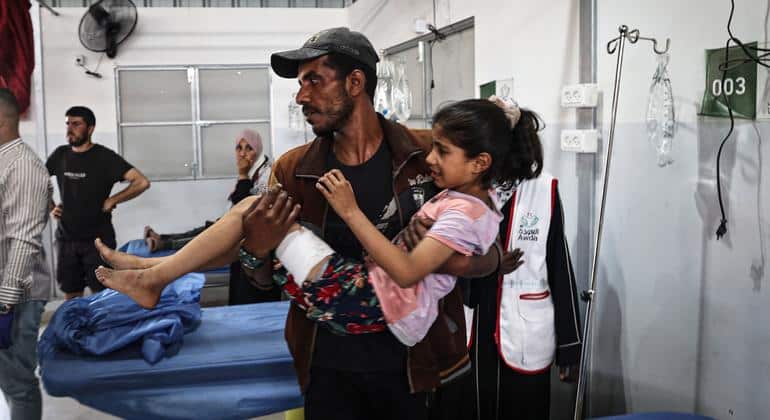Here’s the translation to American English:
—
The situation in Gaza is deteriorating increasingly amidst a war characterized by brutality and human suffering. James Elder, spokesperson for UNICEF, has warned of an imminent collapse in the supply of drinking water in the region, indicating that currently only 40% of water production facilities are operational. A fuel shortage could lead to this percentage dropping significantly within weeks, jeopardizing the lives of over two million Palestinians.
Elder expressed his concern from Geneva, warning that “if fuel does not arrive, children will start dying of thirst soon.” Since the devastating attacks on October 7, 2023, Gaza has entered an electricity crisis that has made the population increasingly reliant on fuel for water treatment and distribution. Depriving the population of this resource, according to Elder, “cuts survival.”
The water crisis has been accompanied by an alarming rise in cases of child malnutrition, with more than 110 children being admitted daily for treatment. This destructive cycle, where the lack of water and malnutrition feed off each other, puts the future of an entire generation at grave risk. Additionally, the water shortage has led to outbreaks of infectious diseases, such as hepatitis A and B, in a context where hospitals are on the brink of total collapse.
The distribution of humanitarian aid faces serious restrictions due to the political and military situation. Although hospitals like the Nasser Medical Complex in Khan Younis continue to treat injured children, the lack of medical supplies due to violence and resource shortages becomes an insurmountable obstacle. Elder shared the tragic account of a child who, after being injured in an attack, did not survive.
The impact of these restrictions has triggered a state of widespread despair among the population, evidenced by the rising number of Palestinian deaths in Israeli attacks, with at least 44 fatalities reported in a single day. Many of these incidents have occurred while individuals were trying to access food and humanitarian assistance.
Elder concluded his statement by emphasizing the lack of fairness in the distribution of aid, highlighting the suffering of the most vulnerable groups in Gaza, such as children, pregnant women, the elderly, and people with disabilities. The devastating reality of war underscores the ongoing struggle for survival of a civilian population immersed in an endless conflict.
Source: MiMub in Spanish
